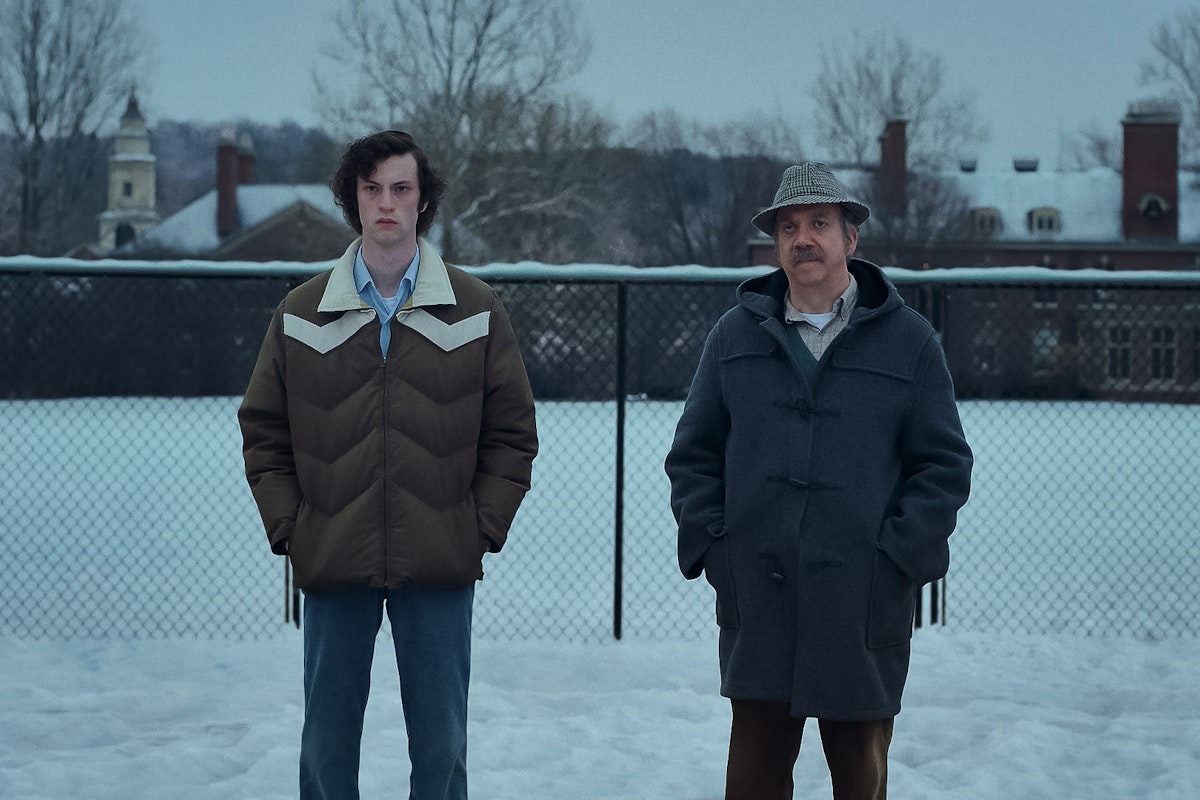
Paul Hunham (Giamatti, again) certainly has elements of those characters. When we meet him, he is grading papers with his signature harshness, muttering about the “lazy,” “vulgar” “philistines” in his class. Hunham is the longtime, much despised Ancient Civilization teacher at Barton, where he was once a student. The school proves a daunting, frigid character in its own right, all icy streams, naked trees, and mahogany walls covered with oil paintings of Important People. The men in these portraits glare down from on high, fixing their stern and haughty glares on the present, which in this case is 1970s New England. Everything from the film stock to the font and style of the opening credits hearkens to the ’70s, but the school itself is a veritable time machine, a holdover from 1787, when, presumably, a group of punishing Protestants opened the school so that, one day, their great-great-grandsons could smoke weed in the parking lot.
Courage, good fellowship, honesty—these are the things that make a Barton man, then and now. But when Hunham refuses to pass a donor’s son in his class, he is condemned by the head of school—once Hunham’s mediocre student, now his mediocre boss—to spend the holidays babysitting the boys whose parents aren’t coming to retrieve them. One boy, for example, can’t join his family’s ski trip until he cuts his hair, while another’s mother and father are on a missionary trip.
Over time, a particular bond emerges between Hunham, a smart but troubled student named Angus (newcomer Dominic Sessa), and the cafeteria cook, Mary (the always pitch-perfect Da’Vine Joy Randolph), who is surviving her first Christmas since her son died in Vietnam. At first, Mary is the only person Hunham can talk to. They enjoy game shows together, even though he doesn’t watch or even have a television (of course he doesn’t). Hunham explains to Mary how he hopes to write a scholarly monograph one day. He doesn’t have a full book in him, he explains, to which Mary gently scolds, “You can’t even dream a whole dream, can you?”